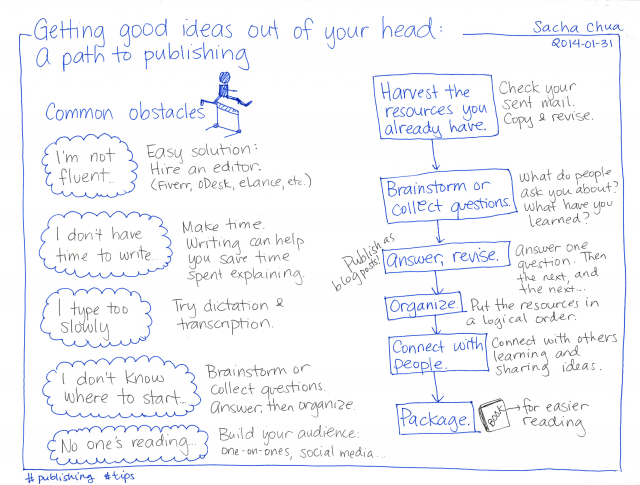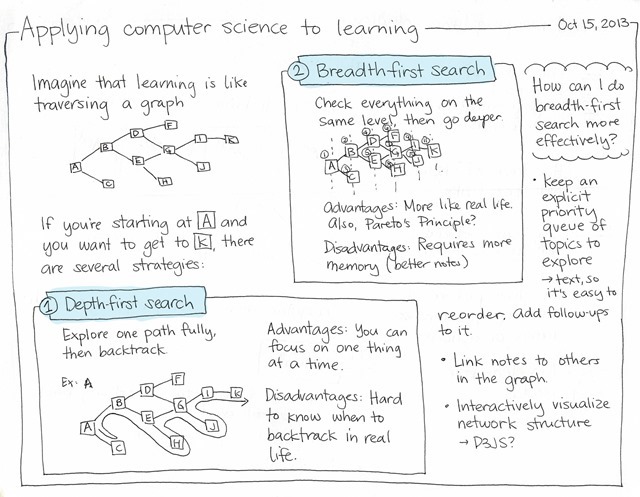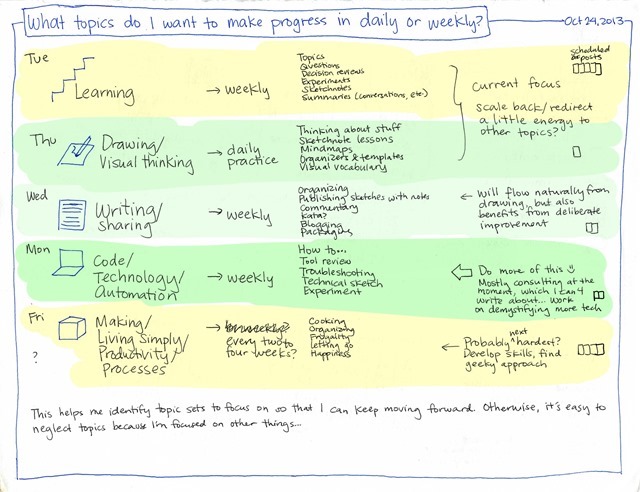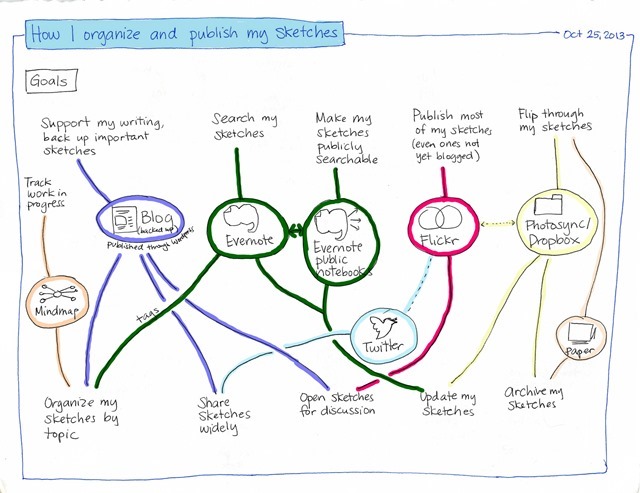How to develop your ideas into blog posts
Posted: - Modified: | blogging, sharing, writingDo you find it easy to come up with lots of ideas for blog posts, but then find it difficult to sit down and actually write them–or spend hours drafting, only to decide that it's not quite ready for posting?
I know what that's like. On the subway, I jot a few notes for a post I want to write. At home, I add more ideas to my outline. Sometimes when I look at those notes, I think, “What on earth is this about?” Other times, I write a paragraph or two, and then my attention wanders. Over the years, I've gotten a lot better at getting posts out there. I still have more ideas than I can write, but at least a few of them make it into my blog! Here's what works for me, and I hope it works for you too.
Capture your ideas. Write them down somewhere: a text file, an Evernote notebook, a piece of paper, whatever fits the way you work. You don't have to write everything down, but it helps to have a list of ideas when you sit down to write. I use Evernote to take quick notes on my phone, and I use Org Mode for Emacs for my outline.
“Oh no! Now I have this huge list of unfinished ideas!” Don't be intimidated. Think of it like a buffet – you can choose what you want, but it doesn't mean that you have to finish everything.
Pick one idea and turn it into a question. Pick the idea that you're most curious about, perhaps, or something that you're learning. Turn it into a question so that you have a focus for your writing and you know when you've answered it. Questions help you keep both your perspective and your reader's perspective in mind. Remembering your question will help you bring your focus back to it if your attention wanders. Remembering your readers' potential question will help you empathize with them and write for them.
Break that question down into smaller questions until you can actually answer it in one sitting. For example: “How can you blog more?” is too big a question. In this post, I want to focus on just “How do you get past having lots of ideas that you don't turn into blog posts?” Make the question as small as you can. You can always write another blog post answering the next question, and the next, and the next.
When you find yourself getting stuck, wrap up there. That probably means that your question was too big to begin with. Break it down even further. Figure out the question that your blog post answers, and revise your post a little so that it makes sense. Post. You can follow up with a better answer later. You can build on your past posts. Don't wait until it's complete. Post along the way.
I often run into this problem while writing technical posts. I start with “How do you do ABC?”… and get stuck halfway because of a bug or something I don't understand. Then I turn my post into “Trouble-shooting XYZ” with my rough notes of how I'm figuring things out. I'd rather have written a complete guide, of course, but mistakes and false starts and rough notes are also useful in themselves.
Don't think that you have to know everything and write everything perfectly the first time around. In fact, blogging can be more interesting and more useful when you do it as part of your journey.
Perfectionist? Take a close look at that anxiety. See if you can figure out what the root of that is. Is it useful for you, or is it getting in your way? There's an advantage to being outwardly polished, yes, but there's also an advantage to learning quickly and building relationships. One of the tips I picked up from the book Decisive: How to Make Better Choices in Life and Work (Heath and Heath, 2013) was the idea of testing the stakes. Make a few small, deliberate mistakes. Ooch your way to better confidence. (See page 138 if you want more details.)
Tell me if this helps, or if you're still getting stuck. More blogging excuse-busters here!






